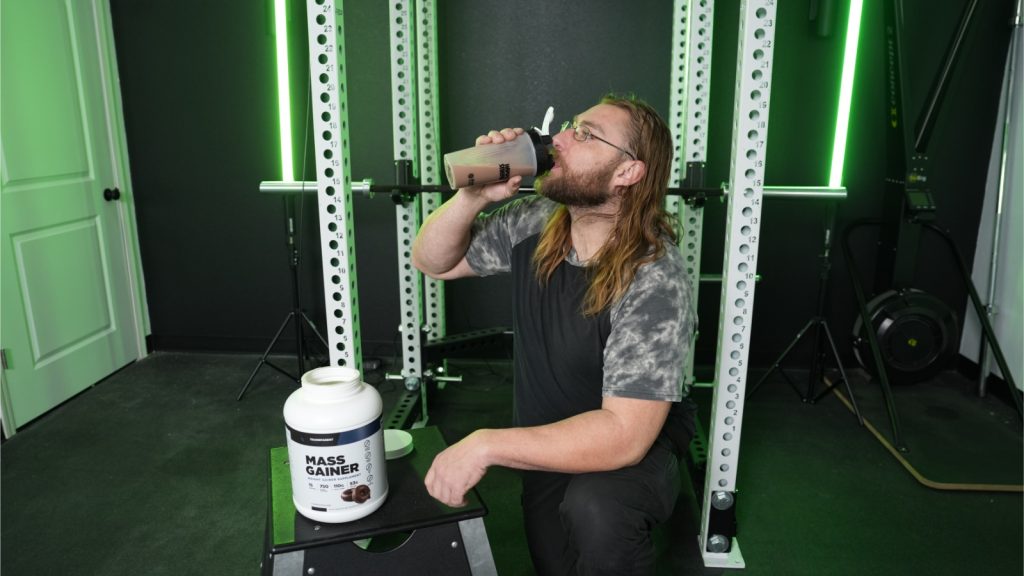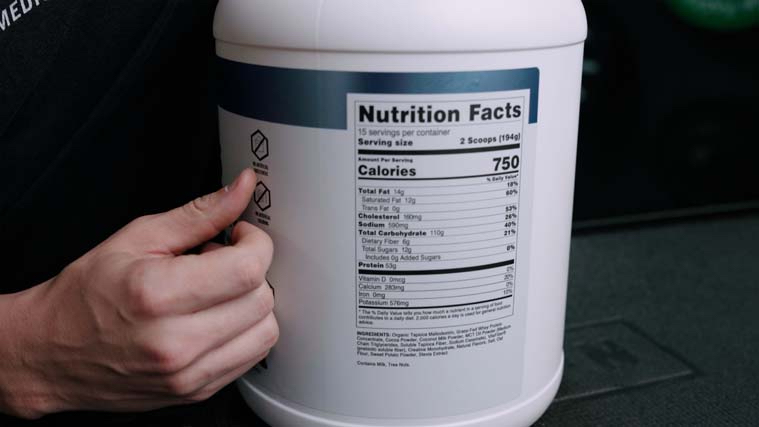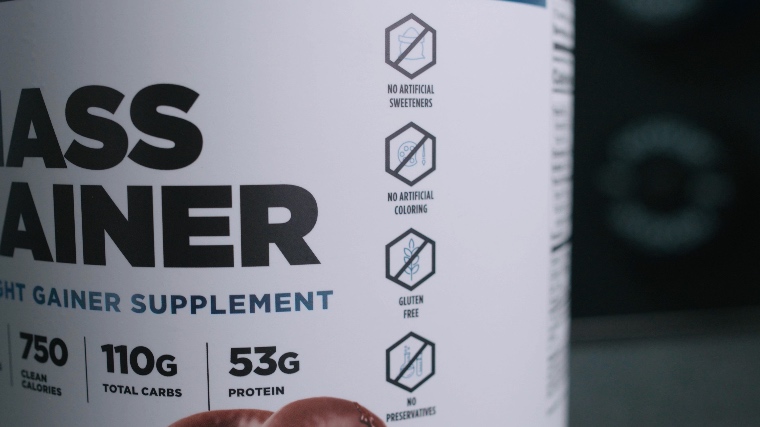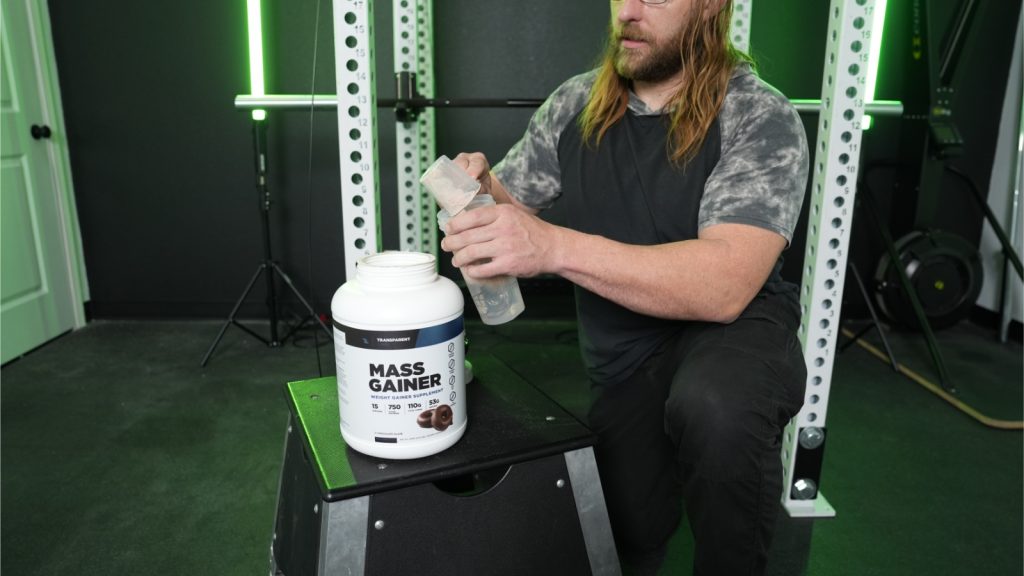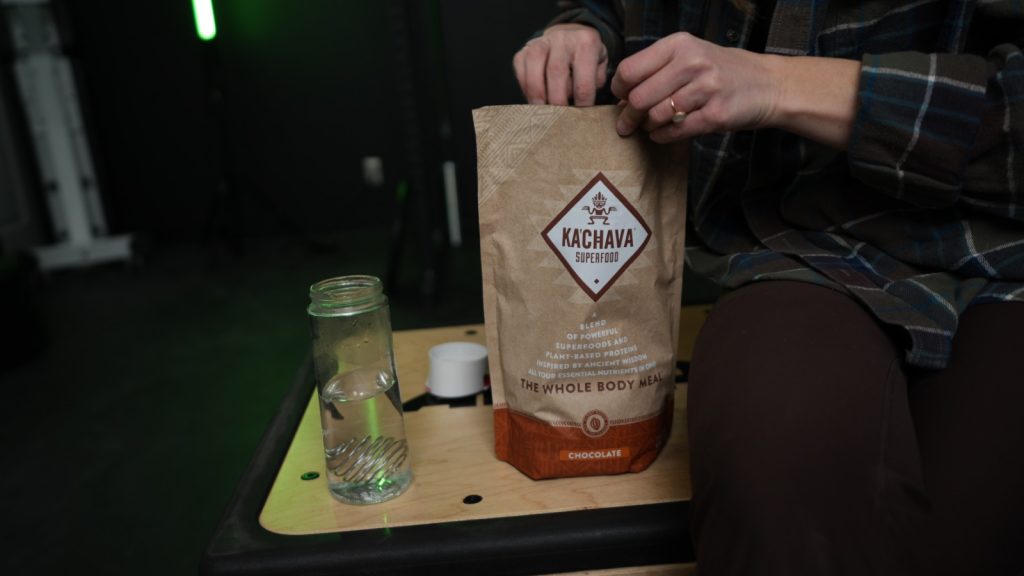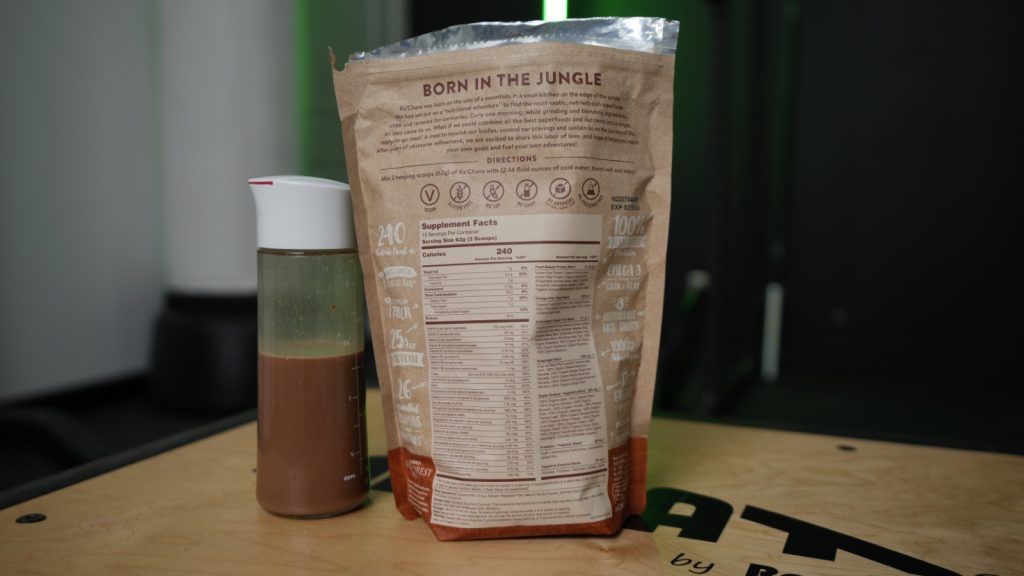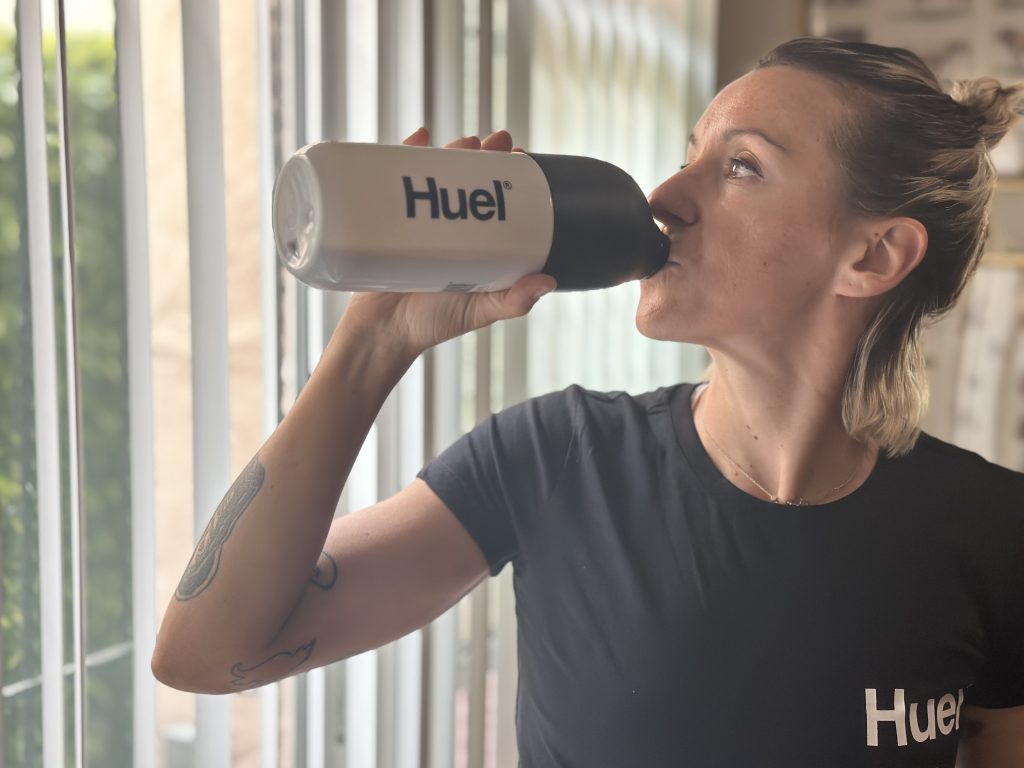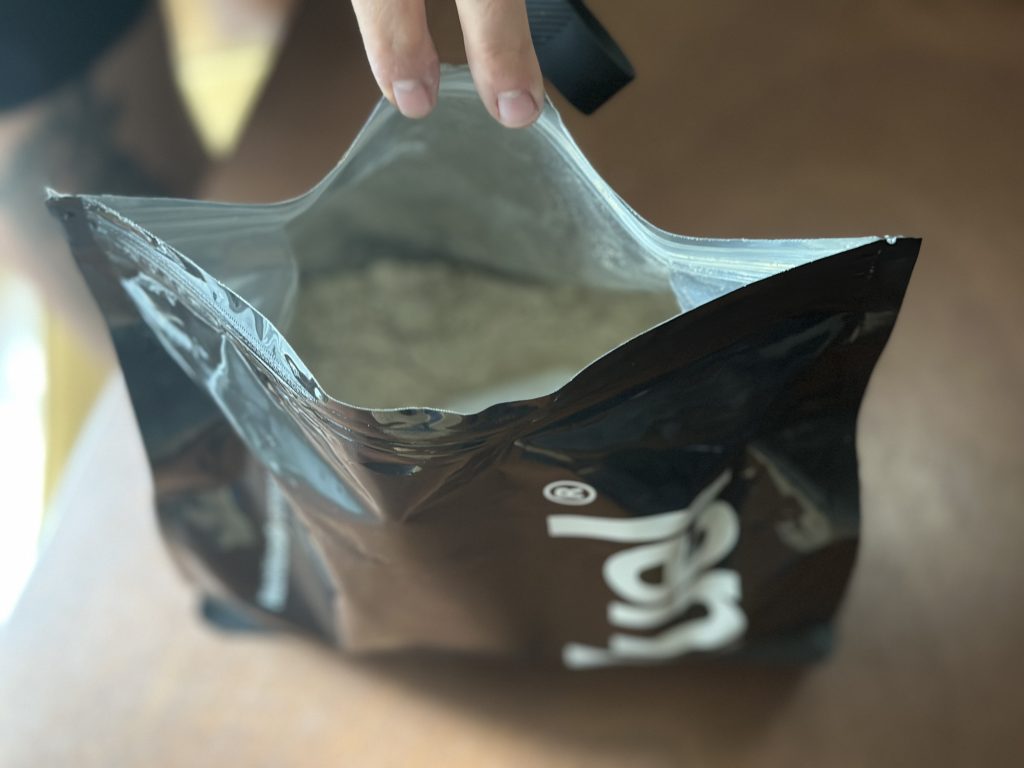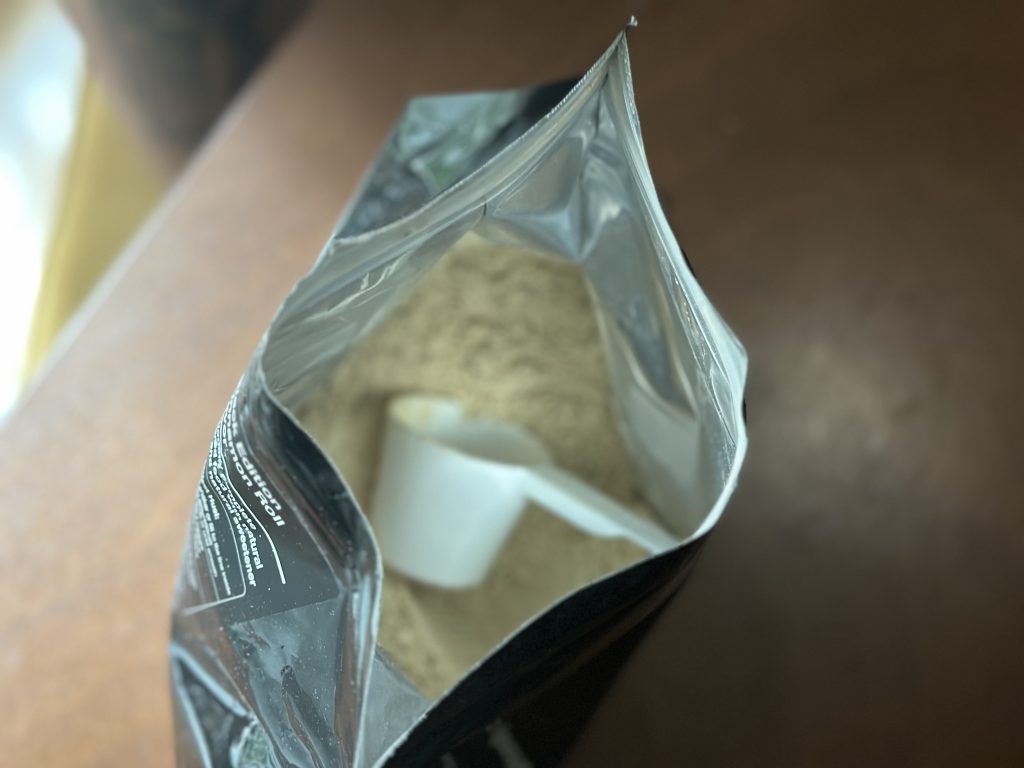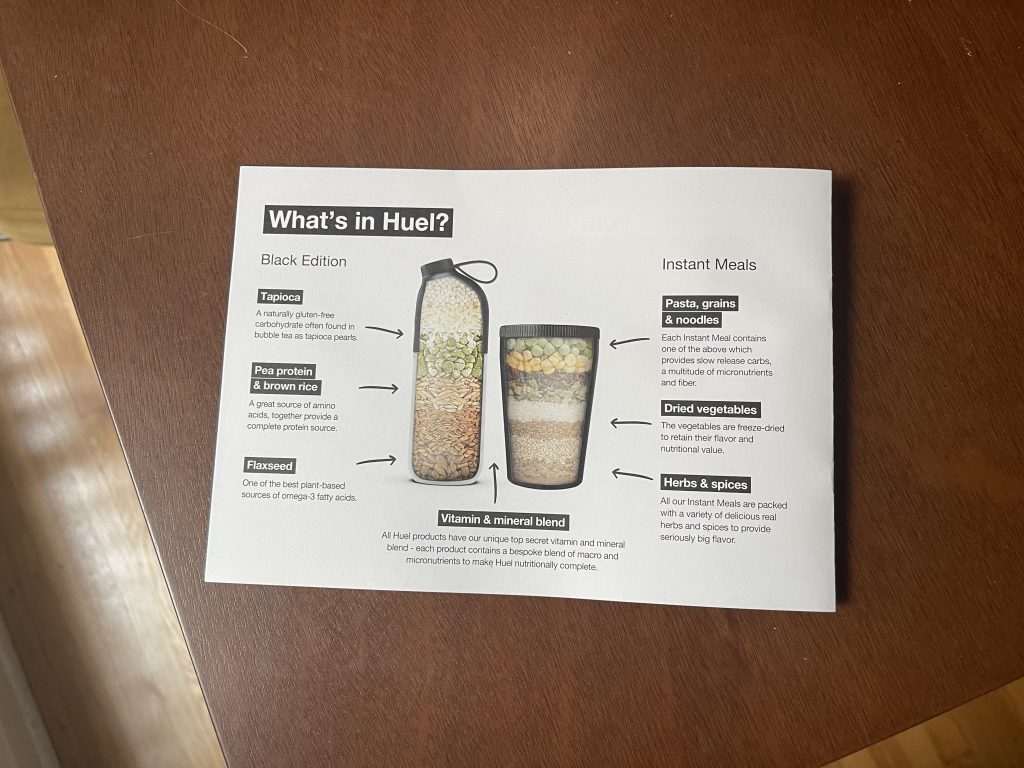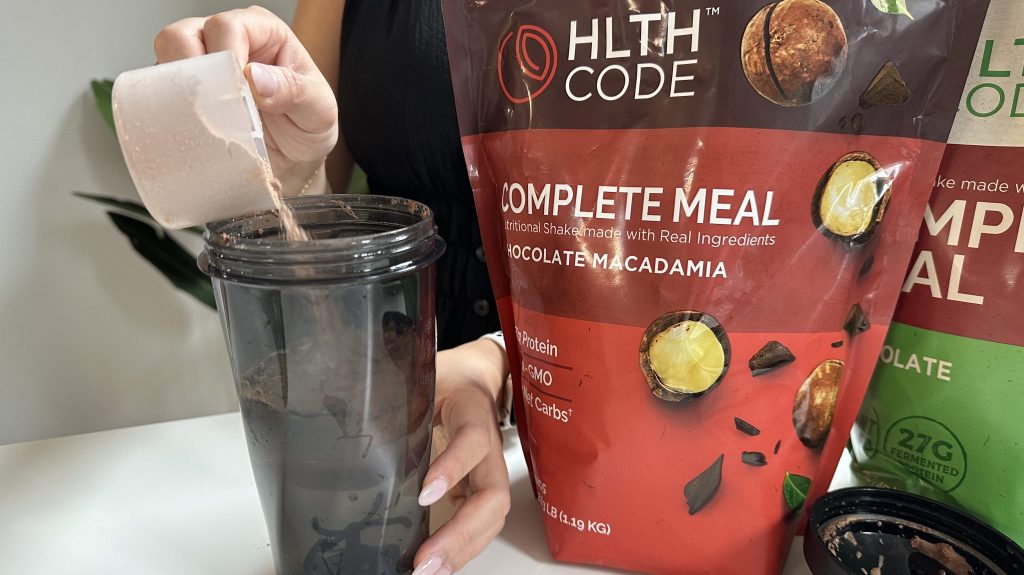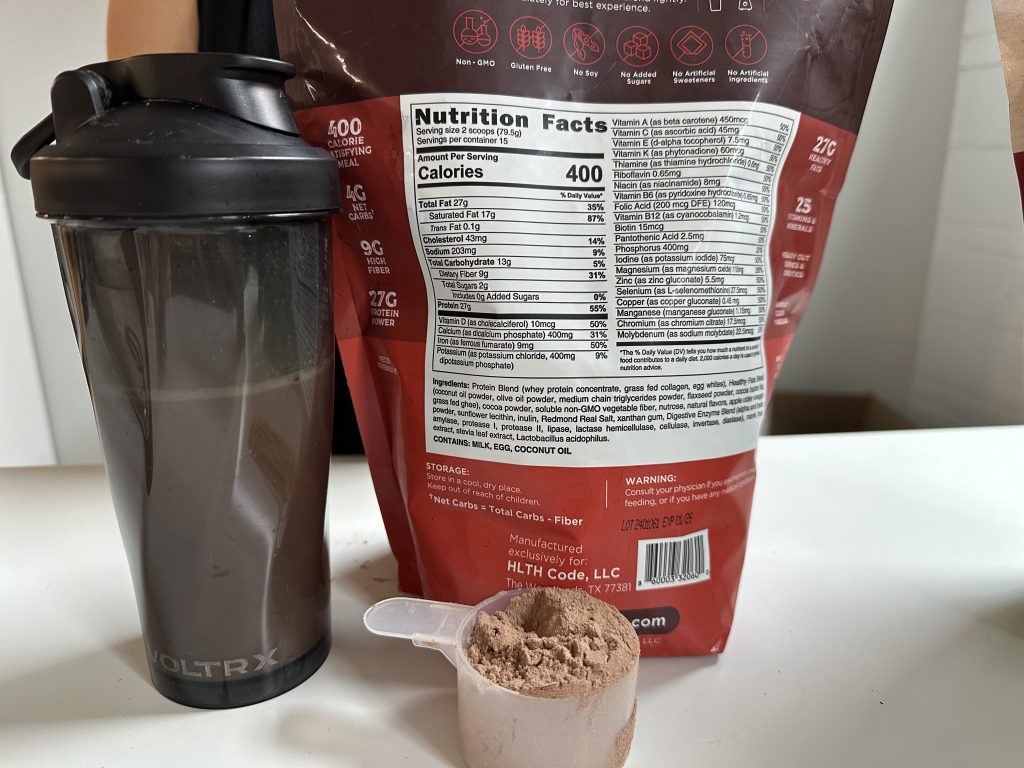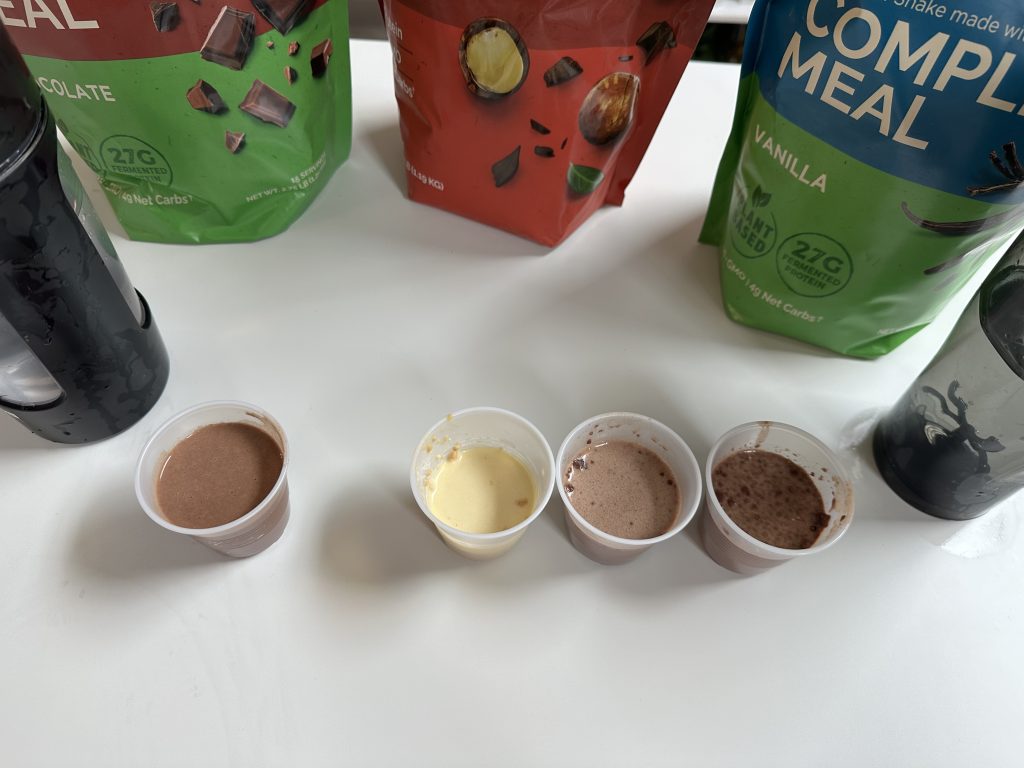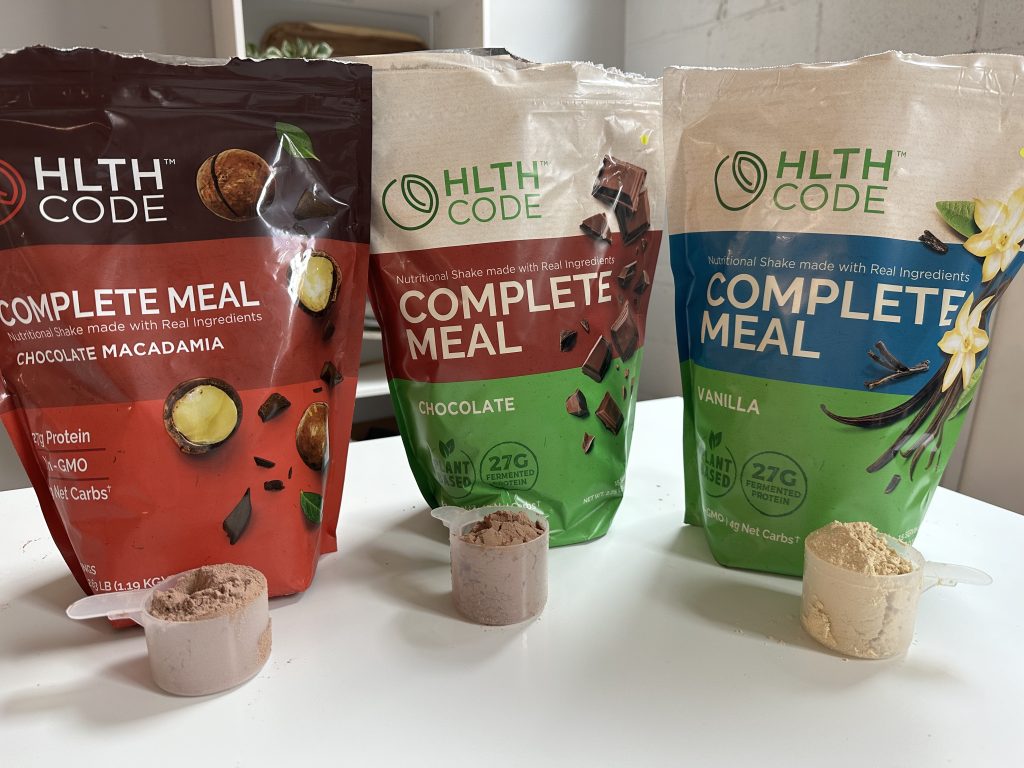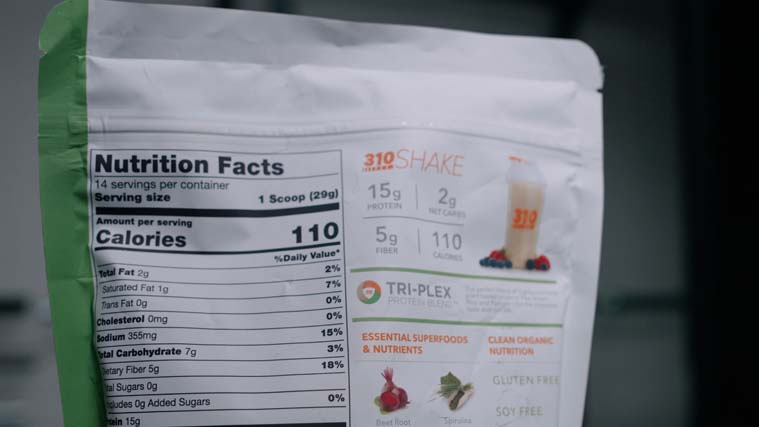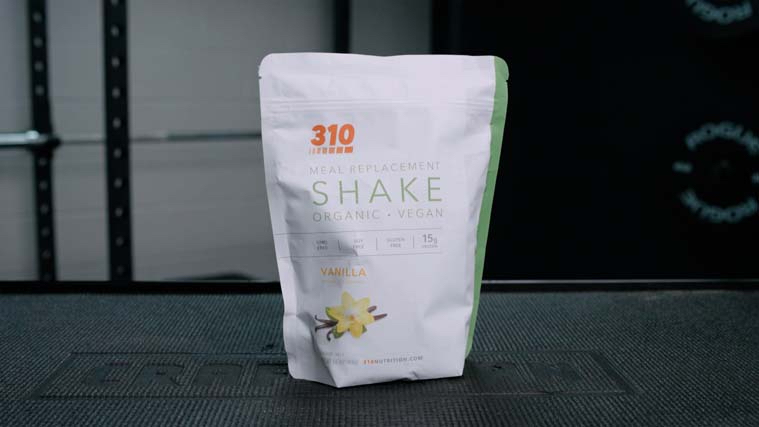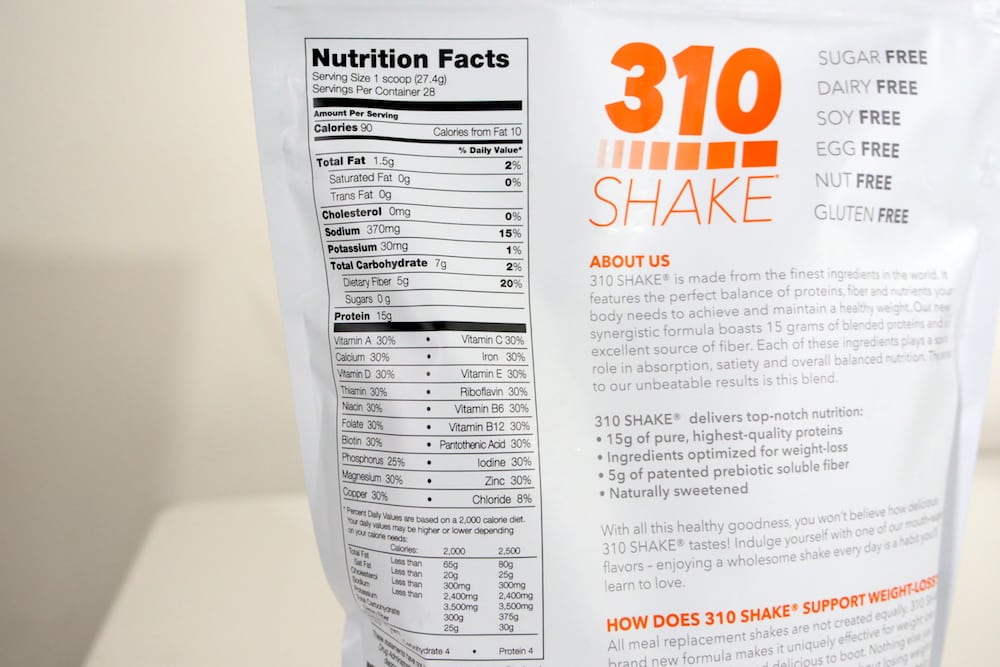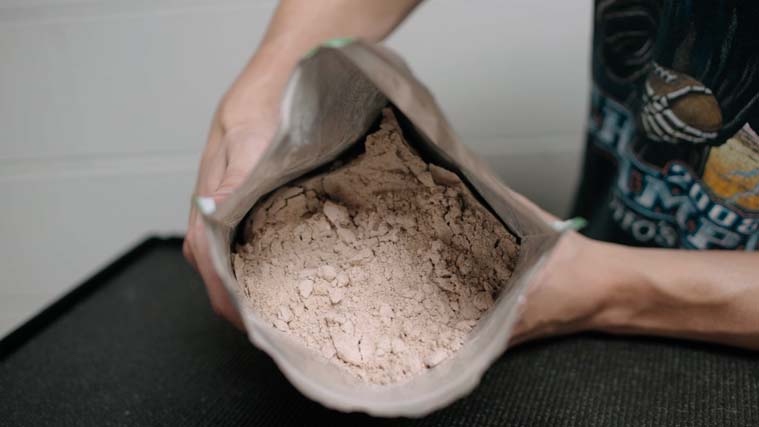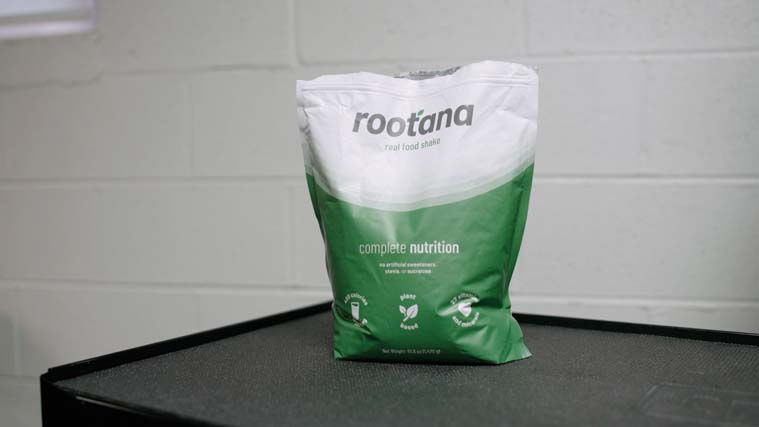Whether you’re a calorie-burning athlete or a gym enthusiast aiming to hit your daily macros, a meal replacement shake could be your perfect quick fix. These convenient meal shakes differ from the best protein powders, since meal replacement shakes are balanced with carbs and fats and rich in essential nutrients like fiber, vitamins, and minerals. Protein shakes, meanwhile, may be high in protein content but lack the additional nutrients to replace a full meal. Athletes may turn to meal replacement shakes to assist with weight loss, for convenience, or to fill specific nutritional gaps and improve performance.
Selecting the right meal replacements isn’t a one-size-fits-all deal — it’s all about your unique preferences and fitness goals. That’s where BarBend’s expert testing team and I, a registered dietitian, come in. We tested and analyzed dozens of meal replacements, rating them each on the following criteria:
- Formulation: Does the meal replacement have high-quality ingredients with minimal additives? Are the ingredients clinically dosed to best support athletes?
- Taste: Is the meal replacement shake pleasant to drink, or does it leave a weird aftertaste? Is the drink something we’d find ourselves craving and enjoying? Are there different flavor options?
- Solubility: Does the meal replacement powder mix well with a variety of liquids? Is there a gritty, coarse texture, or is it smooth and silky?
- Cost: Does the cost accurately reflect the overall value of the product? Is it affordable for most people? Are there subscribe and save options?
The BarBend team has helped over 1.6 million athletes find the right supplements for their nutritional needs and goals. After countless taste tests and trials using our detailed supplement testing methodology and consulting with Chelsea Rae Bourgeois, M.S., R.D.N., L.D., we’ve handpicked a diverse list of the best meal replacement shakes to suit a variety of athletes. So, let’s scoop into them!
Best Meal Replacement Shakes of 2026
- Best Meal Replacement Shake: Transparent Labs Mass Gainer
- Best Meal Replacement Shake for Weight Gain: Ka’Chava Whole Body Meal
- Best-Tasting Meal Replacement Shake: Huel Black Edition
- Best Keto Meal Replacement Shake: HLTH Code Complete Meal
- Best Organic Meal Replacement Shake: Orgain Vegan Organic Nutrition Shake
- Best Protein Meal Replacement: Huel Ready to Drink Shakes
- Best Meal Replacement Shake for Diabetics: 310 Meal Replacement Shake
- Best Vegan Meal Replacement Shake: Rootana
Medical Disclaimer: The content on BarBend is meant to be informative in nature, but it shouldn’t take the place of qualified medical advice. If you’re looking to make a significant change to your diet and training regimen or replace a significant percentage of your food with meal replacements, please consult your medical professional first.
Best Meal Replacement Shakes Video Review
Join BarBend expert tester Jake Herod, NASM-CNC, and registered dietitian nutritionist Chelsea Rae Bourgeois, M.S., R.D.N., L.D., as they break down our picks for the best-tasting meal replacements, from the best shakes and bars to options suited for weight gain and vegan diets.
Best Meal Replacement Shake: Transparent Labs Mass Gainer
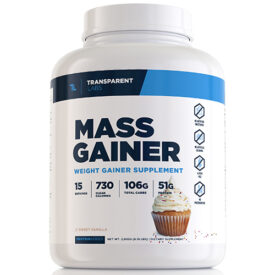
With nothing artificial, whey from New Zealand, a good amount of fiber, and little sugar, this mass gainer will satisfy most athletes. It's a clean mass gainer that focuses on simplicity over added bells and whistles.
Specs
- Calories per Serving: 730-750 calories
- Macros: 106-110g carbs, 51-53g protein, 13-14g fat
- Flavors: Chocolate Glaze Donut, Sweet Vanilla
- Fiber per Serving: 4-6g
- Sugar per Serving: 12g
- Price per Serving: $5.33 for a one-time purchase, $4.80 with a subscription
Best Meal Replacement Shake for Weight Gain: Ka’Chava Whole Body Meal
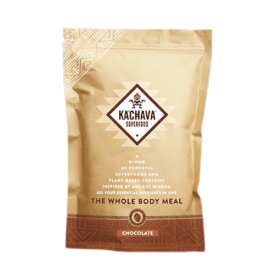
This vegan meal replacement offers various superfood blends that include organic fruits, vegetables, mushrooms, enzymes and probiotics. It totals 240 calories, 25 grams of plant-based protein, 25 grams of carbohydrates (including seven grams of fiber), and seven grams of fat.
Specs
- Calories per Serving: 240 calories
- Macros: 21-25g carbs, 25g protein, 7-8g fat
- Flavors: Chai, Chocolate, Coconut Acai, Matcha, Vanilla
- Fiber per Serving: 4-7g
- Sugar per Serving: 6-7 grams
- Price per Serving: $4.66 for a one-time purchase, $4.00 with subscription
Best-Tasting Meal Replacement Shake: Huel Black Edition
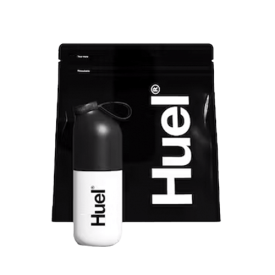
Huel Black Edition is a completely plant-based meal replacement that's loaded with vitamins and minerals. You can also choose from a wide variety of flavor options.
Specs
- Calories per Serving: 400 calories
- Macros: 20-25g carbs, 39-41g protein, 17-18g fat
- Flavors: Banana, Chocolate, Cinnamon Roll, Coffee Caramel, Cookies & Cream, Salted Caramel, Strawberry Shortcake, Unflavored & Unsweetened, Vanilla
- Fiber per Serving: 7-8g
- Sugar per Serving: 1-5g
- Price per Serving: $3.12-$3.41 for a one-time purchase, $2.50-$2.74 with a subscription
Best Keto Meal Replacement Shake: HLTH Code Complete Meal
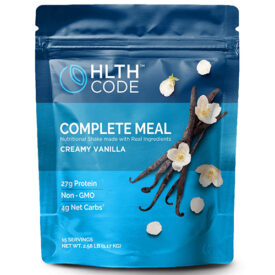
HLTH Code is delicious, offers 27 grams of protein with 400 calories, and contains up to 25 vitamins and minerals. It's also insanely satiating, which means you're getting a lot of bang for your buck with each serving. Save 15% with code BARBEND.
Specs
- Calories per Serving: 400 calories
- Macros: 13g carbs, 27g protein, 27g fat
- Flavors: Chocolate Macadamia, Creamy Vanilla
- Fiber per Serving: 9g
- Sugar per Serving: 2g
- Price per Serving: $4 for a one-time purchase, $3.33 with a subscription
Best Organic Meal Replacement Shake: Orgain Organic Nutritional Protein Shake
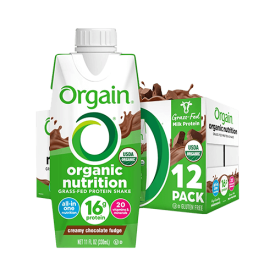
These Orgain shakes are premade, making them a convenient shake to toss into your gym bag or sip in the car. They're USDA organic and non-GMO, too.
Specs
- Calories per Serving: 250 calories
- Macros: 28-30g carbs, 16g protein, 6-8g fat
- Flavors: Creamy Chocolate Fudge, Iced Cafe Mocha, Smooth Chocolate (Vegan) Strawberries & Cream, Sweet Vanilla Bean, Vanilla Bean (Vegan)
- Fiber per Serving: 1-2g
- Sugar per Serving: 10-12g
- Price per Serving: $2.37 for a 4-pack, $2.62 for a 12-pack
Best Protein Meal Replacement Shake: Huel Ready to Drink Shakes
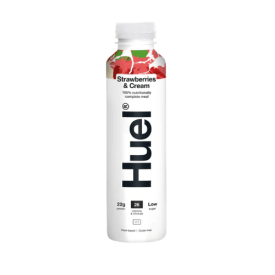
Huel Ready-to-Drink Protein Shakes offer a balanced macronutrient profile with 17 grams of fat, 30 grams of carbs, and 35 grams of protein, making them ideal for meal replacements. These shakes also include a micronutrient blend of 27 essential vitamins and minerals and 6 grams of dietary fiber, providing comprehensive nutrition to support weight loss.
Specs
- Calories per Serving: 400 calories
- Macros: 37-41g carbs, 20-22g protein, 17-19g fat
- Flavors: Banana, Berry, Chocolate, Cinnamon Roll, Iced Coffee Caramel, Salted Caramel, Strawberry, Vanilla
- Fiber per Serving: 4-7g
- Sugar per Serving: 1-5g
- Price per Serving: $5.54 for a one-time purchase, $4.42 with a subscription (price per bottle)
Best Meal Replacement for Diabetics: 310 Meal Replacement Shake
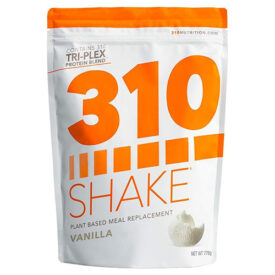
The 310 Meal Replacement Shakes offer a tri-plex blend of protein to control hunger, promote muscle growth, and has only two grams of net carbs and zero artificial sweeteners.
Specs
- Calories per Serving: 110 calories
- Macros: 6g carbs, 15g protein, 2.5-3g fat
- Flavors: Banana Cream Pie, Caramel Sundae, Chocolate Bliss, Chocolate Icing, Cookies N’ Cream, Horchata, Lemon Cake, Mocha, Shamrock Cream, Strawberry, Vanilla Cake, Vanilla Crème
- Fiber per Serving: 5 grams
- Sugar per Serving: 0 grams
- Price per Serving: $3.21-$4.28 for a one-time purchase, $2.41-$3.21 with a subscription
Best Vegan Meal Replacement Shake: Rootana
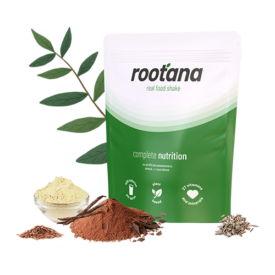
Rootana is a plant-based, vegan-friendly meal replacement shake packed with over 20 percent of your daily needs of 27 different vitamins and minerals. The macro profile is diet-friendly with 20g of protein, 44g of carbs (8g of fiber), and 14g of omega-rich fats for the original flavor. Other flavors are Vanilla and Dark Chocolate.
Specs
- Calories per Serving: 400 calories
- Macros: 44-46g carbs, 20g protein, 14g fat
- Flavors: Dark Chocolate, Original, Vanilla
- Fiber per Serving: 7-9g
- Sugar per Serving: 12g
- Price per Serving: $3.57 for a one-time purchase, $2.86 with a subscription
How We Tested and Chose the Best Meal Replacement Shakes
Meal replacement shakes vary enormously concerning the nutrition they provide. In order to provide a well-rounded list, our team of BarBend experts, including athletes and personal trainers, tested dozens of products, including pre-made shakes and powders. We considered all the ingredients one might need. Using our supplement testing methodology, these are the factors we used to make our picks:
- Formulation: The value of a meal replacement hinges on its ingredients, so we focused on selecting high-quality formulations while minimizing unnecessary additives. Our range also accommodates various dietary needs, including formulations free of gluten, other common food allergens, and artificial sweeteners.
- Macros and micros: We prioritized meal replacements that balance all three macronutrients — carbohydrates, fat, and protein — to support essential body functions, except when tailored for specific diets like diabetes. (1) While these shakes might not resemble a vibrant plate of fruits and veggies, the best meal supplements deliver essential vitamins and minerals your body needs to sustain basic body functions. (2)
- Calories: Calorie needs vary depending on age, body composition goals, activity level, and other factors. We’ve chosen products with a range of calorie counts to accommodate these individual differences, just as each meal on your plate should.
- Taste: A meal replacement should be as satisfying as a regular meal. While taste is subjective, we’ve selected options that we believe offer satisfying flavors and a variety to suit diverse preferences.
- Solubility: Meal replacements can clump and thicken due to their larger serving sizes and the inclusion of carbs and fat. However, we’ve focused on options that mix well, even if they occasionally require the power of a blender for a smoother, milkshake-like consistency.
- Cost: Our selection spans a range of prices to fit most budgets, and we’ve included subscription options for those seeking cost savings.
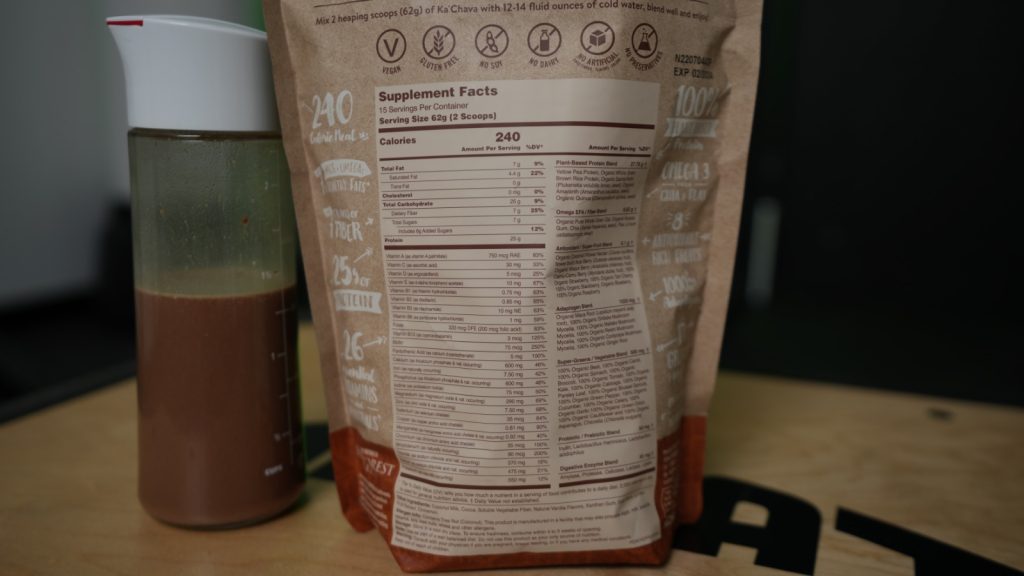
[Related: Best Protein Shakes]
Meal Replacement vs. Protein Shakes
You may already be using protein shakes to supplement your diet, but meal replacement shakes are a little bit different.
While traditional protein shakes typically provide protein as the primary ingredient with trace amounts of carbs and fats (depending on the type of protein), meal replacement drinks are intended to replace a balanced meal.
They’re usually significantly higher in carbohydrates and fats, similar to what you’d find in a whole-food meal. These additional nutrients often come from ingredients such as oat powder, sweet potato powder, MCT oil powder, and other whole-food sources. If you’re using a meal replacement shake that’s higher in calories, similar to mass gainers, you may also see other simple carbohydrate sources like maltodextrin to increase the carbohydrate content.
Certain meal replacement shakes, like Ka’Chava Whole Body Meal, may also include various superfoods, like freeze-dried fruits and vegetables, to provide even more vitamins and minerals with each serving.
Who Are Meal Replacement Shakes For?
Meal replacement shakes are a great choice for anyone who doesn’t have the time to prepare and eat a whole-food meal. Maybe you’re traveling and don’t have access to your normal food, or you’re busy in meetings all day, or you’re a personal trainer who’s working with back-to-back clients for eight hours–meal replacements offer a quick, convenient way to get in some nutrients.
They may also be beneficial for those who are looking to gain weight and struggle to consume enough calories. If you’re bulking and regularly find yourself unable to hit your calorie and macro targets, adding a meal replacement shake may be much easier than forcing yourself to eat another solid meal.
Benefits of Meal Replacement Shakes
Meal replacement supplements offer a quick, efficient meal option. As with any supplement, there are pros and cons of meal replacements, but here are some of the reasons why people choose them over whole foods:
- Convenient: As a non-perishable option, meal replacements are easy to pack and carry, ensuring you have a nutritious meal available wherever you are. So no need to prepare a full meal or resort to unhealthy fast food — just shake, sip, and go.
- Provides balanced nutrition: Unless formulated for specific diets, these products deliver a balanced mix of essential nutrients, ensuring you get the macros, fiber, vitamins, and minerals your body needs for optimal health and wellness.

- Offers portion control: Meal replacements take the guesswork out of portioning, so you don’t have to measure or weigh your food if you count macros. Each serving provides a specific amount of calories and nutrients, making it easier to manage your intake and monitor portions.
- May be cost-effective: Opting for meal replacements can be a smart move for your budget, helping to cut down on a long shopping list and reduce food waste. Plus, they often cost less than eating out or crafting elaborate healthy meals, offering a cost-effective way to keep your nutrition on track.
- May support body composition goals: If you’re looking to lose weight, swapping one daily meal with a meal replacement can be an effective strategy for short- and (potentially) long-term results. (23)(24) Conversely, if you want to gain weight, these supplements can help you increase your daily calorie intake without the hassle of consuming large amounts of food. (9) “If you have specific goals regarding weight or athletics, consider working with a knowledgeable nutrition professional who can recommend personalized macronutrient ranges to accomplish your goals,” says Dr. Jennie Stanford, M.D.
What to Consider Before Buying Meal Replacement Shakes
Choosing the best meal replacement shakes for women and men can be overwhelming with countless products on the market. To simplify this selection process, here are a few key tips to keep in mind.
Macro and Micronutrient Needs
Select a shake that aligns with your specific nutritional needs and goals, whether following a keto diet and needing a low-carb option or aiming to maximize post-workout muscle gains with a higher-protein shake. Many shakes also come packed with essential vitamins and minerals to help fill nutritional gaps, so it’s wise to identify which nutrients you might need more of (or less of, like sodium) to get the most out of your purchase.
Bonus Health-Promoting Compounds
Beyond macros, vitamins, and minerals, some shakes offer health-promoting compounds like prebiotics, probiotics, digestive enzymes, and adaptogens. Consider what extras might benefit your lifestyle and double-check the labels to ensure you get the nutrients that matter most to you.
Dietary Restrictions and Allergens
Whether you have Celiac disease, follow a plant-based diet, or avoid artificial sweeteners, select a meal replacement shake that accommodates your dietary restrictions and preferences. Meal replacement shakes may also contain or be processed in facilities that handle common food allergens like tree nuts, soybeans, and wheat.
Taste and Solubility
Like enjoying a good meal, you should look forward to sipping your meal replacement shake. After all, no one wants to struggle with a clumpy, unappetizing drink. When trying a new brand or flavor, it’s worth checking out reviews and round-ups to see which options are smooth and satisfying.
Intake Strategy
When incorporating meal replacement shakes into your routine, consider both the timing and frequency of consumption. If you’re often on the go, a pre-mixed, ready-to-drink option might be more convenient. “Some bottled meal replacement shakes are better than others because of ingredient quality, nutritional balance, and the presence of preservatives or additives. It’s important to examine the ingredient list to ensure it lines up with your wellness goals and preferences,” says Dr. Christopher Mohr, Ph.D., R.D. However, if you don’t mind blending your shakes with liquid, one of the best meal replacement protein powders could be your best bet.
Additionally, think about how frequently you’ll be using these shakes — just remember you shouldn’t live on meal replacement shakes. Understanding how often you’ll consume them can help you manage your budget effectively.
Clean Ingredients vs. Additives
Clean ingredients typically refers to whole-food based, minimally processed ingredients, while additives can refer to things like artificial sweeteners, thickeners, and preservatives. Not all additives are bad — in fact, some serve practical purposes, like lengthening shelf life or improving texture — but they may cause digestive issues or unwanted exposure to overly processed foods. Lok for trustworthy certifications (like USDA Organic or NSF Certified for Sport) that may indicate a cleaner formulation, and remember that fewer ingredients often indicates a more natural product.
Sweeteners
Some athletes may simply prefer a sweeter-tasting meal replacement drink, which is totally fine. However, artificial sweeteners like high fructose corn syrup may dilute the nutritional value of a meal replacement shake. Instead, look for natural sweeteners like monk fruit, stevia, or organic coconut sugar on the ingredients list. “Stevia is calorie-free and has minimal impact on blood sugar, while monk fruit sweetener is also free from calories should not have an impact on blood sugar levels,” notes Dr. Christopher Mohr, PhD, RD.
Potential Drawbacks of Meal Replacement Shakes
On the surface, meal replacement shakes may seem like a convenient, all-in-one nutritional option. However, they’re not right for everybody, and you should talk to your doctor or trusted medical professional before relying on them regularly. Here are a few other common risks of frequently consuming meal replacement shakes.
Nutritional Gap
Not all meal replacement shakes are created equal. Depending on the goal and intended usage of a specific meal replacement drink, the supplement may be lacking in certain nutrients or have an unoptimal balance of macronutrients. Look for a formulation that’s labeled “complete meal” with balanced macros that follow the recommended distribution range (45–65% from carbs, 20–35% from fats, and 10–35% from protein) with added essential vitamins and minerals.
Not Optimized for Digestion
Many meal replacements are particularly low in fiber, with less than 3g per serving. This dosage doesn’t serve digestive health, and it may mean you feel hungry again quickly after consuming this “meal.” Similarly, some meal replacement drinks (particularly the pre-bottled options) may have additives like emulsifers or gums that can cause bloating or cramps. In our testing, we prioritized the best meal replacements with 4g or more of fiber per serving.
Less Filling
Drinking your calories isn’t nearly as satiating as eating and chewing a full plate of food. In fact, liquid meal replacements digest at a faster rate than solids, so you risk feeling hungry after. Also, humans aren’t great at judging their fullness when relying on shakes, so the risk of over- or under-eating is higher. If you’re looking for the best meal replacement shakes for weight loss, prioritize a protein-rich version and make sure you’re talking to a medical professional about the best appetite regulation strategy for you.
May Displace Whole Foods
In theory, sure, the convenience of meal replacement shakes sounds ideal. In actuality, dietitians would rather you get the majority of your nutrients from real, whole foods. If you rely too heavily on meal replacement shakes, you’re missing out on the beneficial compounds of whole foods, like phytonutrients and antioxidants.
Cost Over Time
There’s no getting around it: The best meal replacement drinks are more expensive than whipping up a meal from the grocery store (or even from the best meal delivery service). Meal replacement shakes can range from $2 to $7 per serving, with the average typically costing around $4 per serving. If you try to cut corners by choosing a cheaper meal replacement, you risk losing out on beneficial added ingredients. Over time, this may not be sustainable for your budget.
Comparing the Best Meal Replacement Shakes
To help you find the best meal replacement drinks for you, we put together this handy chart comparing our best options across the most important variables. Each spec listed is per serving, so you can easily compare across products.
| Product Name | Type | Calories | Protein | Fiber | Price per serving |
| Transparent Labs Mass Gainer | Powder | 730-750 cal | 51-53g | 4-6g | $5.33 one-time, $4.80 subscription |
| Ka’Chava Whole Body Meal | Powder | 240 cal | 25g | 4-7g | $4.66 one-time, $4 subscription |
| Huel Black Edition | Powder | 400 cal | 39-41g | 7-8g | $3.12-$3.41 one-time; $2.50-$2.74 subscription |
| HLTH Code Complete Meal | Powder | 400 cal | 27g | 9g | $4 one-time; $3.33 subscription |
| Orgain Vegan Organic Nutrition Shake | Bottled Drink | 250 cal | 16g | 1-2g | $2.37 for a 4-pack; $2.62 for a 12-pack |
| Huel Ready to Drink Shakes | Bottled Drink | 400 cal | 20-22g | 4-7g | $5.54 one-time; $4.42 subscription |
| 310 Meal Replacement Shake | Powder | 100 cal | 15g | 5g | $3.21-$4.28 one-time; $2.41-$3.21 subscription |
| Rootana | Powder | 400 cal | 20g | 7-9g | $3.57 one-time; $2.86 subscription |
How Much Do Meal Replacement Shakes Cost?
Based on our research, meal replacements typically cost around $4.04 per serving, with prices ranging from $2.37 to $6.04. Factors such as brand, pack size, formulation, and certifications significantly influence these costs. In general, meal replacements with higher calories, better nutritional value, and more certifications tend to be pricier.
| Best Meal Replacement Shake | Transparent Labs Mass Gainer | $5.33 per serving |
| Best Meal Replacement Shake for Weight Gain | Ka’Chava Whole Body Meal | $4.66 per serving |
| Best-Tasting Meal Replacement Shake | Huel Black Edition | $3.12 per serving |
| Best Keto Meal Replacement Shake | HLTH Code Complete Meal | $4.00 per serving |
| Best Organic Meal Replacement Shake | Orgain Vegan Organic Nutrition Shake | $2.37 per serving |
| Best Protein Meal Replacement | Huel Ready to Drink Shakes | $5.54 per bottle |
| Best Meal Replacement Shake for Diabetics | 310 Meal Replacement Shake | $3.21 per serving |
| Best Vegan Meal Replacement Shake | Rootana | $3.57 per serving |
Best Meal Replacement Shakes FAQs
Are meal replacement shakes healthy?
You may wonder, “Are meal replacements healthy?” When formulated with high-quality ingredients and nutritionally balanced, meal replacements can be a healthy addition to a whole-foods balanced diet and provide convenient nutrition on busy days or when you’re short on time.
What is the best meal replacement option?
The best meal replacement shake depends on an individual’s dietary needs, goals, and preferences. Ideally, a top choice should offer balanced macros and essential micronutrients from high-quality ingredients without compromising palatability. After sampling a variety of meal replacement options, we’ve crowned Ka’Chava Whole Body Meal as the top contender. This shake stands out for its all-natural ingredients, delightful flavors, and well-rounded nutritional profile.
When should I use meal replacements?
This depends on your specific goals. You can use a meal replacement in place of any meal but it may be best to swap it with your least nutrient-dense meal. For instance, if your breakfast tends to be a pastry, a meal replacement can help add vitamins and minerals to your diet. Or, if you’re trying to bulk, sipping a meal replacement shake between meals is another option.
Are meal replacement shakes good for weight loss?
Losing weight requires consuming fewer calories than you burn throughout the day, and meal replacement shakes can be a practical tool to help create this calorie deficit. When calorically controlled and rich in protein and fiber, meal replacement shakes can help you lose weight by enhancing satiety while reducing cravings and the temptation to overeat.
Their convenience also makes staying on track with your weight loss plan easier. However, more isn’t always better — research shows that just one meal replacement shake a day can be as effective as two and might even enhance your long-term adherence to your goals. (23) Additionally, meal replacement shakes should complement a whole-food diet rich in essential micronutrients.
References
- Venn B. J. (2020). Macronutrients and Human Health for the 21st Century. Nutrients, 12(8), 2363. https://doi.org/10.3390/nu12082363
- England, E., & Cheng, C. (2024). Nutrition: Micronutrients. FP essentials, 539, 13–17.
- Slavin J. (2013). Fiber and prebiotics: mechanisms and health benefits. Nutrients, 5(4), 1417–1435. https://doi.org/10.3390/nu5041417
- Bodke, H., & Jogdand, S. (2022). Role of Probiotics in Human Health. Cureus, 14(11), e31313. https://doi.org/10.7759/cureus.31313
- Hertzler, S. R., Lieblein-Boff, J. C., Weiler, M., & Allgeier, C. (2020). Plant Proteins: Assessing Their Nutritional Quality and Effects on Health and Physical Function. Nutrients, 12(12), 3704. https://doi.org/10.3390/nu12123704
- Todorova, V., Ivanov, K., Delattre, C., Nalbantova, V., Karcheva-Bahchevanska, D., & Ivanova, S. (2021). Plant Adaptogens-History and Future Perspectives. Nutrients, 13(8), 2861. https://doi.org/10.3390/nu13082861
- Deledda, A., Annunziata, G., Tenore, G. C., Palmas, V., Manzin, A., & Velluzzi, F. (2021). Diet-Derived Antioxidants and Their Role in Inflammation, Obesity and Gut Microbiota Modulation. Antioxidants (Basel, Switzerland), 10(5), 708. https://doi.org/10.3390/antiox10050708
- Rodriguez, D., Lavie, C. J., Elagizi, A., & Milani, R. V. (2022). Update on Omega-3 Polyunsaturated Fatty Acids on Cardiovascular Health. Nutrients, 14(23), 5146. https://doi.org/10.3390/nu14235146
- Larson-Meyer, D. E., Krason, R. K., & Meyer, L. M. (2022). Weight Gain Recommendations for Athletes and Military Personnel: a Critical Review of the Evidence. Current nutrition reports, 11(2), 225–239. https://doi.org/10.1007/s13668-022-00395-3
- Kreider, R. B., Kalman, D. S., Antonio, J., Ziegenfuss, T. N., Wildman, R., Collins, R., Candow, D. G., Kleiner, S. M., Almada, A. L., & Lopez, H. L. (2017). International Society of Sports Nutrition position stand: safety and efficacy of creatine supplementation in exercise, sport, and medicine. Journal of the International Society of Sports Nutrition, 14, 18. https://doi.org/10.1186/s12970-017-0173-z
- Batch, J. T., Lamsal, S. P., Adkins, M., Sultan, S., & Ramirez, M. N. (2020). Advantages and Disadvantages of the Ketogenic Diet: A Review Article. Cureus, 12(8), e9639. https://doi.org/10.7759/cureus.9639
- Pu, S. Y., Huang, Y. L., Pu, C. M., Kang, Y. N., Hoang, K. D., Chen, K. H., & Chen, C. (2023). Effects of Oral Collagen for Skin Anti-Aging: A Systematic Review and Meta-Analysis. Nutrients, 15(9), 2080. https://doi.org/10.3390/nu15092080
- Matsuoka, R., & Sugano, M. (2022). Health Functions of Egg Protein. Foods (Basel, Switzerland), 11(15), 2309. https://doi.org/10.3390/foods11152309
- Crosby, L., Davis, B., Joshi, S., Jardine, M., Paul, J., Neola, M., & Barnard, N. D. (2021). Ketogenic Diets and Chronic Disease: Weighing the Benefits Against the Risks. Frontiers in Nutrition, 8, 702802. https://doi.org/10.3389/fnut.2021.702802
- Cava, E., Padua, E., Campaci, D., Bernardi, M., Muthanna, F. M. S., Caprio, M., & Lombardo, M. (2024). Investigating the Health Implications of Whey Protein Consumption: A Narrative Review of Risks, Adverse Effects, and Associated Health Issues. Healthcare (Basel, Switzerland), 12(2), 246. https://doi.org/10.3390/healthcare12020246
- McEvoy, M. (2019, March 13). Organic 101: What the USDA organic label means. U.S. Department of Agriculture. https://www.usda.gov/media/blog/2012/03/22/organic-101-what-usda-organic-label-means
- Cintineo, H. P., Arent, M. A., Antonio, J., & Arent, S. M. (2018). Effects of Protein Supplementation on Performance and Recovery in Resistance and Endurance Training. Frontiers in Nutrition, 5. https://doi.org/10.3389/fnut.2018.00083
- Phillips, S. M., Chevalier, S., & Leidy, H. J. (2016). Protein “requirements” beyond the RDA: implications for optimizing health. Applied physiology, nutrition, and metabolism = Physiologie appliquee, nutrition et metabolisme, 41(5), 565–572. https://doi.org/10.1139/apnm-2015-0550
- Phillips, S. M., & Van Loon, L. J. (2011). Dietary protein for athletes: from requirements to optimum adaptation. Journal of sports sciences, 29 Suppl 1, S29–S38. https://doi.org/10.1080/02640414.2011.619204
- M. Pinckaers, P. J., Trommelen, J., & Snijders, T. (2021). The Anabolic Response to Plant-Based Protein Ingestion. Sports Medicine (Auckland, N.z.), 51(Suppl 1), 59-74. https://doi.org/10.1007/s40279-021-01540-8
- Mueed, A., Shibli, S., Korma, S. A., Madjirebaye, P., Esatbeyoglu, T., & Deng, Z. (2022). Flaxseed Bioactive Compounds: Chemical Composition, Functional Properties, Food Applications and Health Benefits-Related Gut Microbes. Foods, 11(20). https://doi.org/10.3390/foods11203307
- Łuszczki, E., Boakye, F., Zielińska, M., Dereń, K., Bartosiewicz, A., Oleksy, Ł., & Stolarczyk, A. (2023). Vegan diet: Nutritional components, implementation, and effects on adults’ health. Frontiers in Nutrition, 10. https://doi.org/10.3389/fnut.2023.1294497
- López-Gómez, J. J., Izaola-Jauregui, O., Primo-Martín, D., Torres-Torres, B., Gómez-Hoyos, E., Ortolá-Buigues, A., Martín-Ferrero, M. A., & De Luis-Román, D. A. (2020). Effect of Two Meal Replacement strategies on Cardiovascular Risk Parameters in Advanced Age Patients with Obesity and Osteoarthritis. Nutrients, 12(4), 976. https://doi.org/10.3390/nu12040976
- Astbury, N. M., Piernas, C., Hartmann-Boyce, J., Lapworth, S., Aveyard, P., & Jebb, S. A. (2019). A systematic review and meta-analysis of the effectiveness of meal replacements for weight loss. Obesity reviews : an official journal of the International Association for the Study of Obesity, 20(4), 569–587. https://doi.org/10.1111/obr.12816
